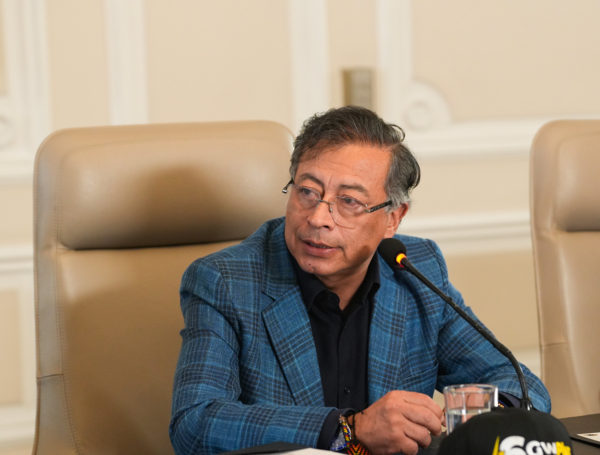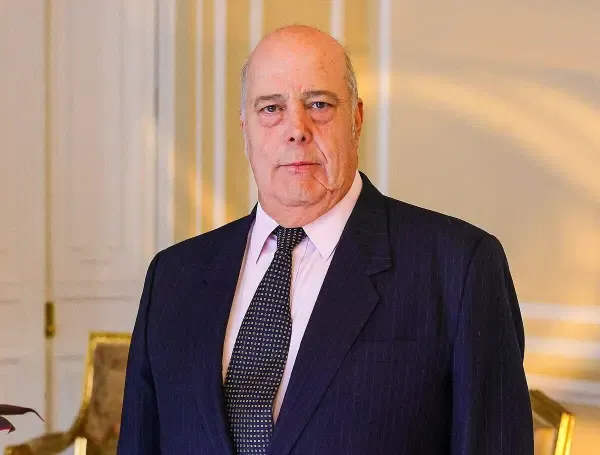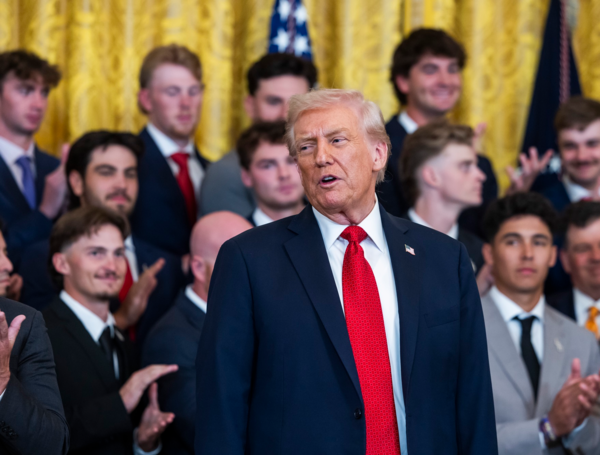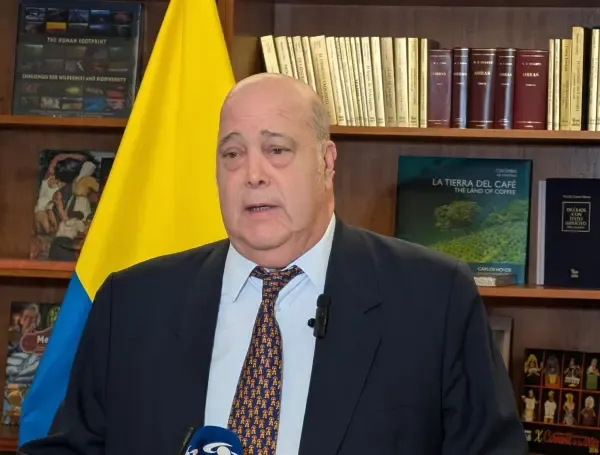Daniel García-Peña has grown accustomed to working in the midst of the storm. His poise in times of high tension has allowed for a degree of calm in the relationship between Colombia and the United States. However, he will have to return to Washington with the mission of rebuilding diplomatic channels and preventing the conflict between the two countries from escalating further, amid questions about his performance as ambassador from his own boss, President Gustavo Petro.
"If the ambassador isn't able to create a path that reaches out and offers a different perspective to Trump, we're going to have bigger problems. That's the task I'm leaving to the ambassador, yet," the president warned during a cabinet meeting in which he called out the diplomat and Foreign Minister Rosa Villavicencio for not approaching the Republican magnate to convey their messages, an already complex task given the constant outbursts from the head of state against his counterpart and vice versa.

In less than a month, García-Peña went from witnessing his boss ordering U.S. troops to disobey their commander-in-chief to being recalled for consultations for the second time this year after the White House accused Petro of acting like a"drug trafficking kingpin."
In this context, Sandra Borda, a doctor in Political Science from the University of Minnesota, suggests that the ambassador's chances of achieving direct dialogue with Trump are zero."By protocol, there is no possibility of President Trump meeting with the ambassador. Trump only meets with his equals, and this is so bad that President Petro has not managed to rise above the category of meeting with the United States ambassador in Bogotá. He hasn't even had a chance to climb the ladder at the State Department," Borda indicated.

Given these circumstances, Eduardo Velosa, director of the Master's in International Studies at Javeriana University, believes García-Peña should seek direct dialogue with two very important political actors: Michael Kozak, head of the Office of Hemispheric Affairs, and Christopher Landau, Undersecretary of State. In these spaces, discussion around the differences in the fight against drug trafficking will be key.
“Beyond securing a personal appointment, the most difficult thing is assertively communicating the Petro administration's message. This is because Kozak was the designated space representative to Venezuela in 2019, which means he has firsthand knowledge of what's happening in Venezuela. Regarding Landau, his close relationship with Colombia also means he understands the strength and scope of Petro's message,” Velosa noted.
On the other hand, there is the group of congressmen who are part of the respective Senate and House Foreign Relations Committees. “Some of these congressmen are key, as they are actually responsible for certain issues of US foreign policy as far as the legislative branch is concerned. In both chambers, Democrats are in the minority, and Republicans interested in Latin American affairs are few. It is not an easy task, as there are not many interlocutors, and those who are present have a position very close to Trump's regarding drugs, Venezuela, and the use of force to ensure sovereignty and the protection of US interests,” the professor added.

The idea is already in the ambassador's head. Speaking with EL TIEMPO, he noted that he will return to North America with his eyes on the budget currently being debated in that country's Congress."In this upcoming phase, Congress is more important because they haven't been able to agree on the budget right now, which is fundamental because this is when they are looking not only at Colombia's issue but also at the global level in relation to foreign aid. Therefore, we are intensifying this work with Republicans and Democrats more than ever, but with greater emphasis on the Republicans, who hold the majorities," he explained.
The U.S. House Appropriations Committee proposed reducing economic aid to Colombia by 50 percent for fiscal year 2026, from approximately $400 million to $208.7 million. However, the bill has not yet been voted on in the full House, nor is there any action in the Senate; therefore, it is not law nor is it in force.
The historian's objectives also include negotiations to avoid new tariffs and the Free Trade Agreement (FTA)."We must continue working on the trade front, not just waiting to see if there will be more tariffs. We have already said that with 10 percent, the Free Trade Agreement between the two countries is ignored," he told this newspaper.
According to President Petro, through the U.S. Chargé d'Affaires in Bogotá, a proposal was submitted seeking to strengthen the country's coca leaf crop substitution program, linked to tariff preferences.
"Zero tariffs on food and agro-industrial production exported by Colombia to the US. US government incentives for American companies that trade in agro-industrial products to enter into long-term contracts with farmers to purchase goods to replace illicit crops," the head of state emphasized.

Likewise, negotiations continue with Colombian deportees, an issue that sparked the first major clash between the two governments and has, to date, left more than 2,000 Colombians returning to the country.
“Colombia and the United States must continue working together. What we insist on is that diplomatic channels must be open to exchange concerns, but also aspects on which we agree,” García-Peña insisted.
For now, with no announcements of new tariffs and following the meeting between Gustavo Petro and the US Chargé d'Affaires in Bogotá, John McNamara, the crisis has cooled. But the ambassador is well aware that this could change at any moment.

